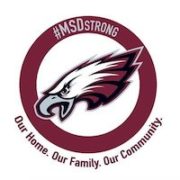THE BIG LEAP: Elementary to Middle School
Making the transition from elementary to middle school is a colossal milestone for all children and their parents. For “our children” on the autism spectrum, with ADHD, or other developmental “abilities” this dramatic change of life is even more traumatic than for their NT (neuro-typical) peers. We have found the expectations of middle school teachers to be very different and considerably more intense than that of their elementary school counterparts. In our experience with helping incoming 6th graders make the transition to the secondary school way of life many factors play a vital role in student success and happiness (and of course the serenity of parents).
The primary goal of the middle school teacher is to help all of their students become ready to be successful in high school and beyond. Middle school teachers expect all students to be functioning at a higher level of independence than they did in primary (elementary) school. We have found that the teachers who tend to be most successful with helping “our children” transition to middle school are very aware that our new 6th graders are still operating on a 5th grade elementary school level or below, emotionally, socially, and possibly academically. These students need direct instruction on how to function in a middle school campus. Issues to be considered include; organization, self-advocacy, conflict management, socialization and following new routines. Just making the transition to more classes and being with many more students and teachers will take a considerable amount of planning, dedication and effort by everyone involved, i.e., parents, teachers, administrators, support staff, and of course the children themselves. Looking ahead, the high school teachers “our children” will have are even more content driven, as they are focused on delivering content knowledge on particular subjects to help the students obtain mastery and have to adjust to many of the same transitioning issues as middle school teachers.
Many of “our children” are “visual learners” and benefit by being shown what organization looks like in a specific setting. They need to be shown how to maintain and utilize their materials, including their personal office (their backpack). Their backpacks are often affectionately referred to as “the black hole” because many times, school work and other materials that go into the backpack mysteriously disappear. “Our children” need to learn how to navigate from one class to another, how to navigate the lunch room, how to enter and exit the school campus, how to find and use the busses or parent pick-up line for those children not taking busses, how to be successful in P.E. and even the procedures for using the restrooms. They need “authentic” life training and experiences to see how to be successful. They must utilize many social, emotional, and academic skills regarding interacting with peers, teachers and others, in addition to knowing what a completed homework assignment looks like, what successful note taking, class work, and homework looks like, and how to deal with a break in routine, conflicts, and how to study for and complete tests successfully.
Dr. Eric Nach, Ph.D., M.Ed., A.S.D. Cert., is a Developmental and Behavioral Specialist and the President of the Support for Students Growth Center in Boca Raton, FL





